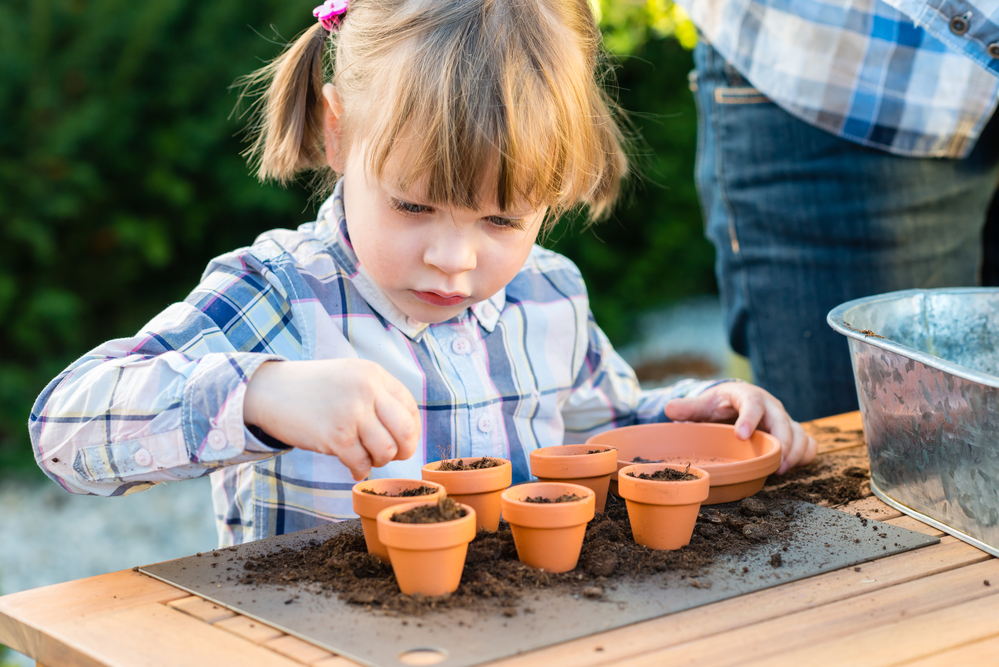Once February rolls around, chances are good you’ve had enough of dark, gloomy weather. You’re already salivating at the thought of home grown produce, picked, and prepared for your family’s dining.
Purchasing seeds can be a way to brighten your spirits and plan your yard or garden. Seed buying can be overwhelming, however—there are so many kinds of seeds available! From organic, to pest resistant to pollinated to hybrid—how do you make a choice? Your eyes might glaze over, staring at page after page of seed packets. Or, you might stand in front of the seed display at your favorite garden shop, staring into space, unable to decide.
Here are a few suggestions to help you make choices.
- First, make a good plan for what you want to plant and where you want to plant it. When the store clerk asks you where your rutabaga will be planned, you’ll know it’s the south-side of the yard, behind the garage, with abundant sun. Or, the part of the yard with northern exposure and partial sun. He or she can advise you accordingly.
- Make sure if you’re purchasing from a catalog, the recommendations given are for your Growing conditions in Georgia, for example, are vastly different from our conditions here in the Pacific Northwest.
- Organic vs conventional seeds? What’s the difference? Organic gardening/farming methods produce organic seed, using the same procedures used to produce organic food. To be certified organic, they must be produced by a certified organic operation. Organic seed has not been exposed to any chemicals throughout the growth process.Conventional treated seeds, on the other hand, are usually dusted with USDA approved chemicals to help fight common issues that can affect germination and early plant growth. The kinds of chemicals applied to seed crops aren’t as strongly regulated as those applied to food crops, however.
- If the prospect of all your hard work in prepping, planting and watering your veggie garden, only to lead to disease-ridden plants doesn’t appeal, consider buying disease resistant seeds. Many seed companies, including Burpee, Harris, Stokes and Johnny’s Selected Seeds, offer seeds that are resistant to certain common pathogens including mildews, black rot, bolting and wilt. Check with your local garden supply store for disease resistant seeds or starters for the plants you want to grow.
- Days to Maturity. Here in the Pacific Northwest, our growing season is shorter and cooler than some. Make sure to read the Days to Maturity section when making your selection to determine if your seed will grow successfully, enabling an abundant harvest, in our area.
- Hybrid, open-pollinated, or heirloom? Don’t get caught up in fancy terms like heirloom when making your seed or starter purchase. Generally, an heirloom plant is one that has stood the test of time in growing, producing a tasty yield year after year. However, make sure the test of time happened in your growing area. Just because an heirloom tomato seed grew well in Nebraska, doesn’t mean it will produce good fruit in the Pacific Northwest.Open-pollinated seeds are those pollinated by insect, bird, wind, humans, or other natural means. In brief, OP seeds tend to mature over a longer harvest window and are often less expensive.Hybrid seeds (often called F1 in seed catalogs) usually yield a consistent, uniform crop. They may show more hardiness than their OP counterparts, but are generally more expensive. Please note that hybrid seeds are notthe same as GMO. Organic gardeners can plant them in good conscience.
Have fun with your seed selection. If you need help designing your yard or garden, give us a call at (360) 265-5231.
